![]()
![]()
![]()
![]()
![]()
![]()
makāña
a cousin that is not within the clan, a child of one’s paternal relations. So, all the green circles and triangles are the purple square’s makāñi:
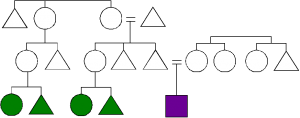
![]()
![]()
![]()
![]()
![]()
![]()
makāña
a cousin that is not within the clan, a child of one’s paternal relations. So, all the green circles and triangles are the purple square’s makāñi:

![]()
![]()
![]()
![]()
![]()
![]()
![]()
![]()
![]()
masōwaron
one’s paternal uncle, paternal grandfather, one’s father’s brother or father, any of one’s father’s male relatives of the same generation or older. One’s masōwaron is not part of one’s clan. Unlike other terms, masōwaroni can be in multiple generations. So, the green triangles are the purple square’s masōwaroni.
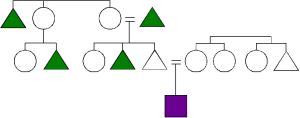
So, I’ve been taking pictures of DC all week:
Eyeing the bällchen:
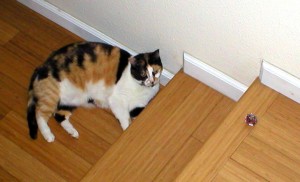
Helping to change the sheets:
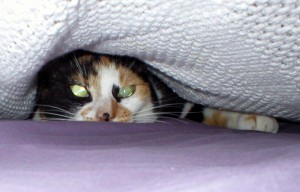
And, today, demanding to be let out even though the cat door is right next to her:

![]()
![]()
![]()
![]()
![]()
![]()
![]()
![]()
![]()
mapāranen
one’s paternal aunt, paternal grandmother, one’s father’s sister, one’s father’s mother, any of one’s father’s out-clan female relatives of the same generation or older. Unlike other terms, mapāranni can be in multiple generations. So, the green circles are the purple square’s mapāranni.
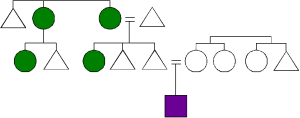
![]()
![]()
![]()
![]()
![]()
![]()
![]()
![]()
![]()
mawēsaron
one’s great uncle, one’s mother’s mother’s brother or husband, any male kin of one’s grandmother’s generation. Again, the green triangles in relation to the purple square:
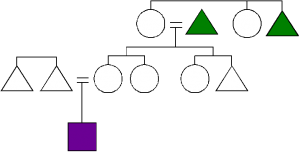
![]()
![]()
![]()
![]()
![]()
![]()
![]()
mārjanen
one’s grandmother, mother’s mother, great-aunt, any female kin of one’s mother’s mother’s generation. The green circles are the purple square’s mārjanni:
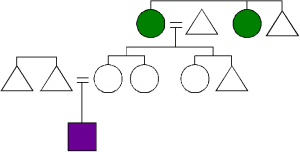
![]()
![]()
![]()
![]()
![]()
![]()
masōwa
one’s father. This can also include one’s father’s brothers, provided they all married into the clan. Since the Kēleni sometimes marry in sibling groups, this is not an uncommon occurrence. So, the green triangle’s are the purple square’s masōwi.
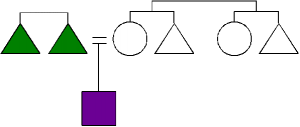
![]()
![]()
![]()
![]()
![]()
![]()
mawēsa
one’s maternal uncle, one’s mother’s brother, one’s male caregiver or parent, any of one’s mother’s male kin of the same generation. So, the green triangles are the purple square’s mawēsi:
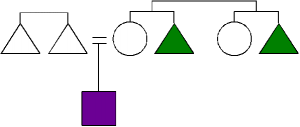
![]()
![]()
![]()
![]()
![]()
![]()
memāra
one’s biological mother. This is more of a technical term and is not in wide usage. In the picture below, the green circle is the purple square’s memāra.
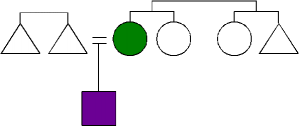
![]()
![]()
![]()
![]()
![]()
![]()
mapāra
one’s mother, aunt, foster-mother, one’s mother’s sister, any of one’s mother’s female relatives of the same generation. In the picture below, the purple square’s mapāri are designated by the green circles.
